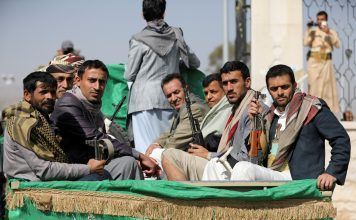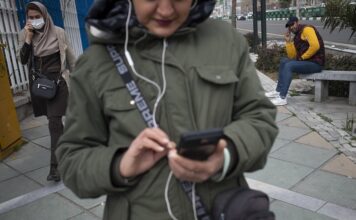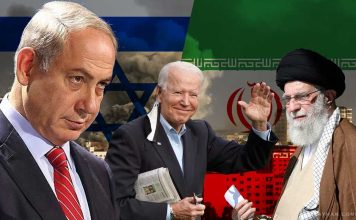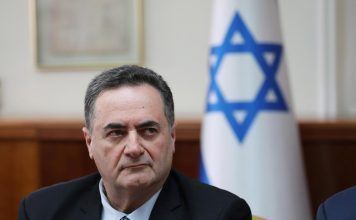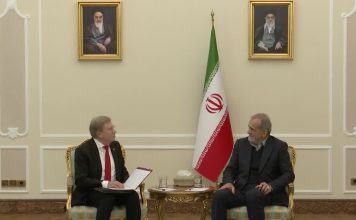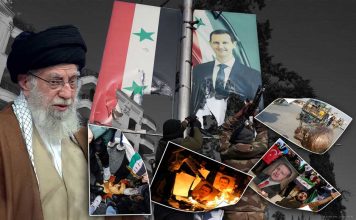By Michelle Nichols
UNITED NATIONS, Sept 18 (Reuters) – Though famously skeptical of the United Nations, U.S. President Donald Trump harnessed its collective power to impose crushing sanctions on North Korea in a bid to start talks with Pyongyang, but faces frustration over a similar push on Iran.
While the U.N. Security Council was unified on North Korea, there is almost total opposition to the Trump administration’s assertion that it has triggered a return of all U.N. sanctions on Iran, using a process agreed under a 2015 nuclear deal with Tehran that Washington quit two years ago.
Diplomats expect Iran to be a focus when Trump addresses the annual U.N. meeting of world leaders on Tuesday from the White House just days after a deadline passes that Washington says requires all countries to extend an arms embargo and reimpose other sanctions on Tehran.
It will be the fourth U.N. speech by Trump, who is seeking re-election on Nov. 3 and espouses an “America first” approach often at odds with the multilateralism that governs the world body. Diplomats gasped during his debut when he threatened “fire and fury” on North Korea and laughed the second year when he boasted about his accomplishments. Last year he denounced Iran‘s “bloodlust,” but said there was a path to peace.
After years of U.S. rhetoric on Iran at the United Nations, Washington said it took action at the 15-member Security Council last month that it said would lead to a return of all U.N. sanctions on Iran this weekend.
But 13 members, including America’s long-time allies, said the U.S. move has no legal effect and diplomats say few countries are likely to implement the measures, which were lifted under the deal between world powers and Iran that aimed to stop Tehran developing nuclear weapons.
“There should be joint leverage against Iran on the nuclear and other files,” said a senior European diplomat, speaking on condition of anonymity. “Damage is done when that unity cracks and one country goes it alone and the leverage is reduced.”
Pompeo said on Wednesday that the United States would do “all the things we need to do” to enforce the U.N. sanctions.
Trump called the Iran nuclear agreement the “worst deal ever.” Since withdrawing, the Trump administration has imposed unilateral sanctions under what it says is a “maximum pressure” campaign to force Iran to negotiate a new deal.
A senior Security Council diplomat, also speaking on condition of anonymity, argues the Iran nuclear deal had been working until Washington quit and “Iran is closer to the bomb right now than it was two years ago,” adding that the threat posed by North Korea “now is bigger than three years ago.”
[aesop_image img=”https://kayhanlife.com/wp-content/uploads/2018/08/Trump-and-Kim.jpeg” panorama=”off” credit=”U.S. President Donald Trump waves next to North Korean leader Kim Jong Un at the Capella Hotel on Sentosa island in Singapore June 12, 2018. Kevin Lim/The Straits Times via REUTERS” align=”center” lightbox=”on” captionsrc=”custom” captionposition=”left” revealfx=”off” overlay_revealfx=”off”]
PRESSURE TO TALK
Despite his disregard for the U.N., Trump got off to a good start in his first year in office: the Security Council unanimously agreed to a U.S.-led push bolster sanctions on North Korea three times after Pyongyang tested long range ballistic missiles and carried out a nuclear test.
In 2018, then U.S. envoy to the U.N. Nikki Haley recalled that she told Trump: “We would not be in the situation we are with North Korea without the U.N. because that was the only way to get the international community on the same page.”
The pressure allowed Trump to open a diplomatic door to North Korean leader Kim Jong Un aimed at Pyongyang’s denuclearization. But despite three meetings, no progress has been made and Security Council unity appears shaky as China and Russia are suggesting it consider lifting some sanctions on Pyongyang to encourage further talks.
Trump, however, says his diplomacy is working as Kim has not carried out any nuclear or long-range missile tests since 2017.
Trump has turned his back on decades of U.S. leadership at the U.N., by pulling out of the U.N. Human Rights Council, the World Health Organization, the U.N. cultural agency UNESCO, a global accord to tackle climate change and opposed a U.N. migration pact. Washington has cut funding for the U.N. Population Fund and the U.N. agency that helps Palestinian refugees.
Nevertheless, Trump has admitted that he sees potential in the U.N. and has used the U.S. position at the organization’s biggest funder to push Secretary-General Antonio Guterres to carry out reforms.
Trump, it turns out, also pushed for U.N. involvement when his diplomats would not.
When North Korea invited then U.N. political affairs chief Jeffrey Feltman to visit Pyongyang in 2017 amid Trump’s blunt rhetoric and sanctions campaign, Trump overruled opposition from his own officials to say Feltman should go, Feltman told Reuters last week.
Six months later, Trump had his first meeting with Kim in Singapore.
“I wouldn’t say it paved the way (for the Singapore summit), I think everything contributes,” Guterres told Reuters on Monday of the visit by Feltman in 2017. “But what matters here is that the key protagonists engage with each other.”
(Reporting by Michelle Nichols; editing by Mary Milliken and Grant McCool)

